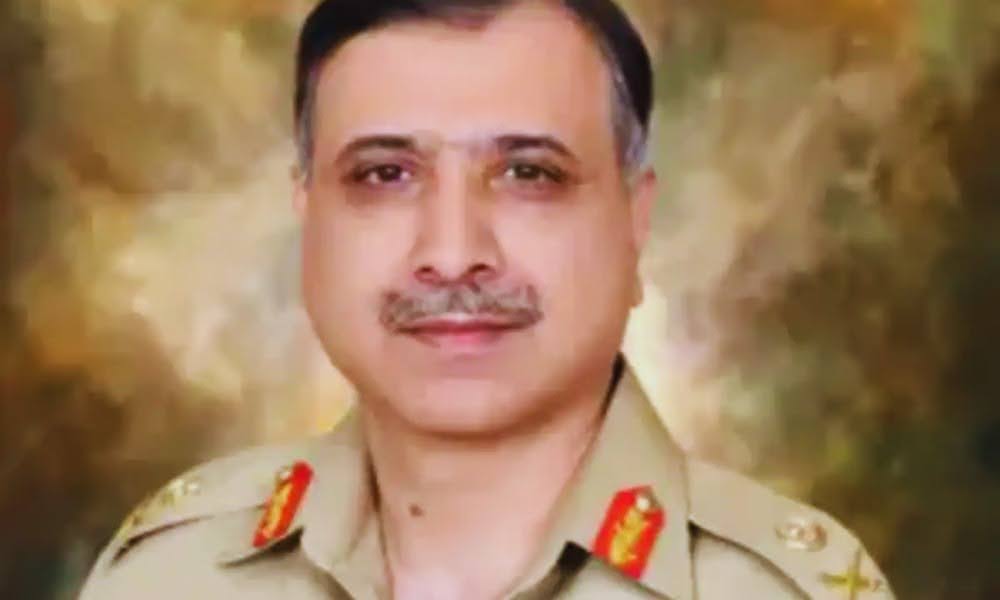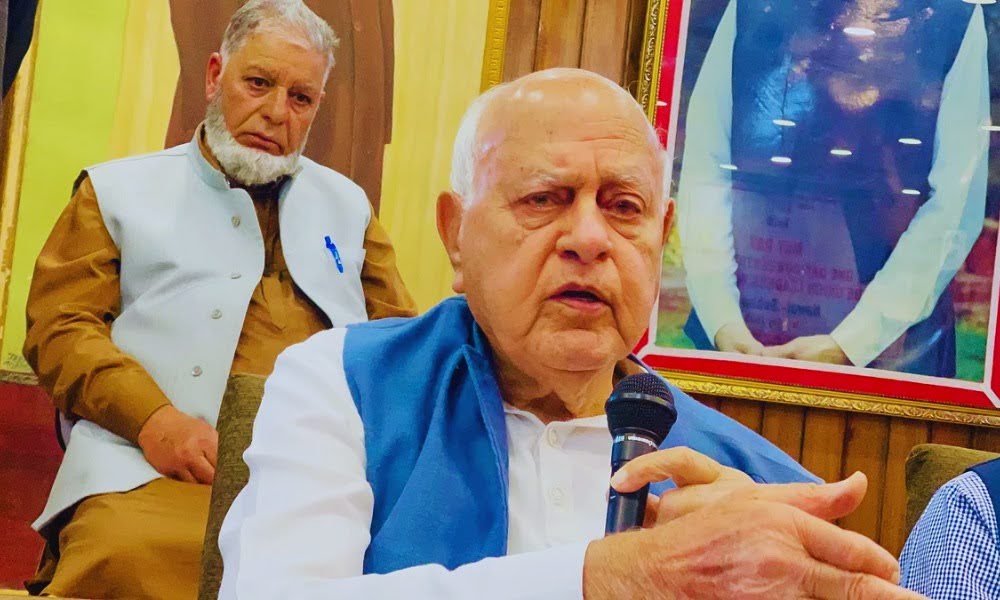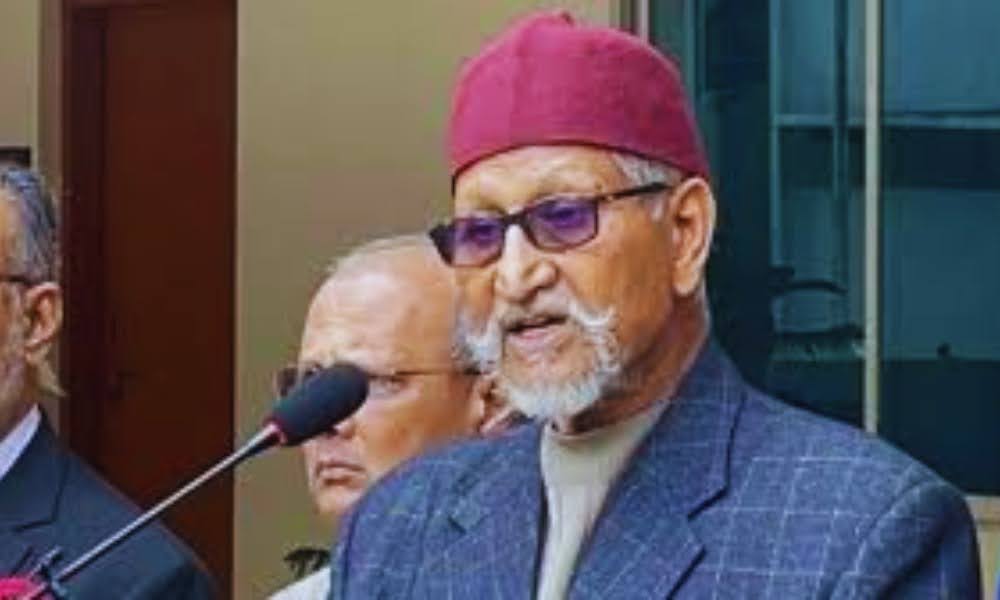Lt Gen Mohammad Asim Malik Named Pakistan’s New NSA, to Spearhead India Ties and Regional Security Amid Rising Tensions

Lt Gen Muhammad Asim Malik, currently serving as the Director General of Inter-Services Intelligence (ISI), has been appointed as Pakistan’s new National Security Adviser (NSA).
The appointment was made as an additional charge, and Lt Gen Malik assumed this role immediately.
He took over as the ISI chief in September 2024. His new appointment coincides with the growing strain between India and Pakistan following the deadly Pahalgam terror attack that left 26 people, mostly tourists, dead.
Background: Who is Lt Gen Mohammad Asim Malik?
Lt Gen Mohammad Asim Malik is a three-star general born into a Punjabi Awan family from Shahpur in Sargodha District, Punjab. He is the son of retired Lt Gen Ghulam Muhammad Malik.
He joined the Pakistan Military Academy (PMA) as part of the 80th Long Course and graduated with the prestigious Sword of Honour. He was commissioned into the 12th Baloch Regiment in 1989.
Lt Gen Malik earned a B.Sc degree from the University of Balochistan in 1999 and later studied at Fort Leavenworth in the United States.
He also attended the Royal College of Defence Studies in the UK and holds a PhD in US-Pakistan relations from the National Defence University (NDU), Pakistan.
Career Path and Key Roles
Malik remained aligned with the Baloch Regiment throughout his military service. As a brigadier, he led an Infantry Brigade in Waziristan. Later, as a major general, he commanded the 41st Infantry Division in Balochistan.
He also served in the Military Operations Directorate at GHQ and as an instructor at the Pakistan Command and Staff College in Quetta. Additionally, he was Chief Instructor at NDU, Islamabad.
He was later appointed Adjutant General at GHQ, where he managed the legal case against former ISI chief Lt Gen Faiz Hameed, a move seen as part of the state’s effort to imprison former Prime Minister Imran Khan and PTI members.
During his tenure, Imran Khan’s arrest took place, followed by violent protests, including the May 9 arson attacks, investigations into which were overseen by Malik.
Ascent to Power
On September 23, 2024, he was named Director General of ISI, succeeding Nadeem Anjum. He is the first PhD holder to be appointed to this role.
His dual role as NSA and ISI chief makes him the second most powerful DG ISI after Akhtar Abdur Rahman Khan, who held both roles under President Zia-ul-Haq.
This move comes as part of a broader succession plan within the Pakistan Army, with Lt Gen Malik expected to retire in October 2025 and Army Chief Gen Asim Munir in November 2025.
Rising Tensions After Pahalgam Attack
Pakistan’s decision to elevate Malik coincides with India revamping its own National Security Advisory Board (NSAB) post the Pahalgam attack and appointing former R&AW chief Alok Joshi as its head.
The April 22 attack triggered fears in Islamabad of potential Indian retaliation. Pakistan’s Information Minister Attaullah Tarar even claimed that India could strike within 24 to 36 hours, citing “credible intelligence”.
Tarar posted a warning on X, stating any aggression would receive a decisive response and that India would be held responsible for any serious regional consequences.
Escalating Accusations and Preparations
Pakistan’s Prime Minister Shehbaz Sharif accused India of indulging in “empty rhetoric” over the Pahalgam incident and called for a “neutral” probe.
Defence Minister Khawaja Asif told Reuters that a military strike from India seemed imminent. He added that while Pakistan was on high alert, nuclear weapons would be used only in case of an “existential threat”.
India’s firm response after the terror attack has triggered visible alarm in Pakistan. Its military and civilian leadership have been scrambling: sending envoys abroad, moving militants into bunkers, and deploying forces along the border.
The Resistance Front (TRF), a known proxy of banned terror group Lashkar-e-Taiba (LeT), initially claimed responsibility for the Pahalgam attack but later withdrew the claim, possibly due to pressure from Pakistan’s defence establishment.
India’s Diplomatic and Strategic Countermeasures
Prime Minister Narendra Modi has held multiple security meetings with his top ministers and defence chiefs. He vowed to chase the perpetrators and their sponsors “to the ends of the earth”.
In retaliation, India has downgraded ties with Pakistan: pausing the Indus Waters Treaty, expelling Pakistani military attaches, closing its airspace to Pakistani airlines, and shutting the Attari-Wagah border.
Pakistan responded by suspending the Simla Agreement and mirroring India’s measures.







